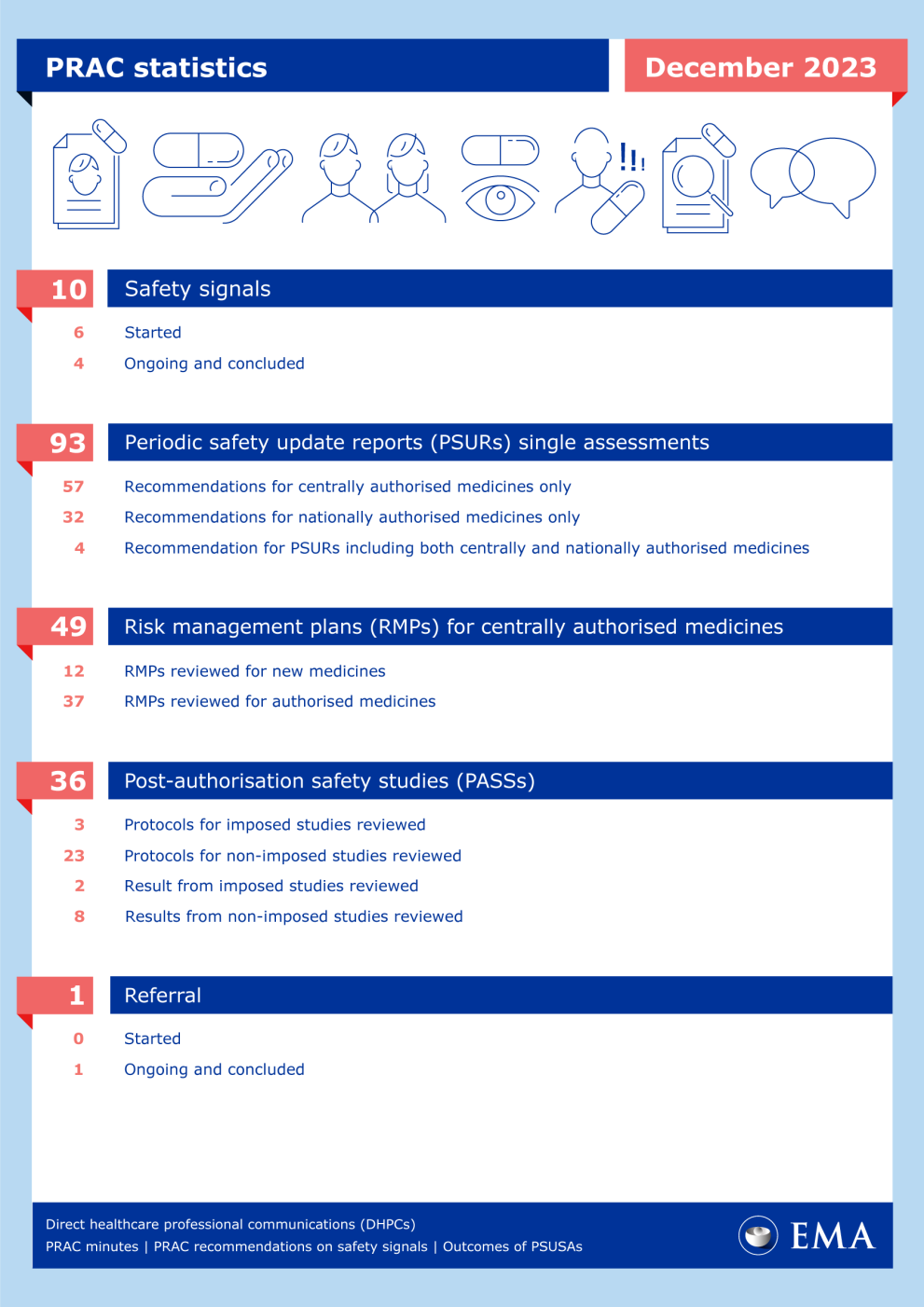Meeting highlights from the Pharmacovigilance Risk Assessment Committee (PRAC) 27-30 November 2023
PRAC recommends measures to minimise the risk of serious side effects with medicines containing pseudoephedrine.
NewsHumanPharmacovigilanceReferrals
